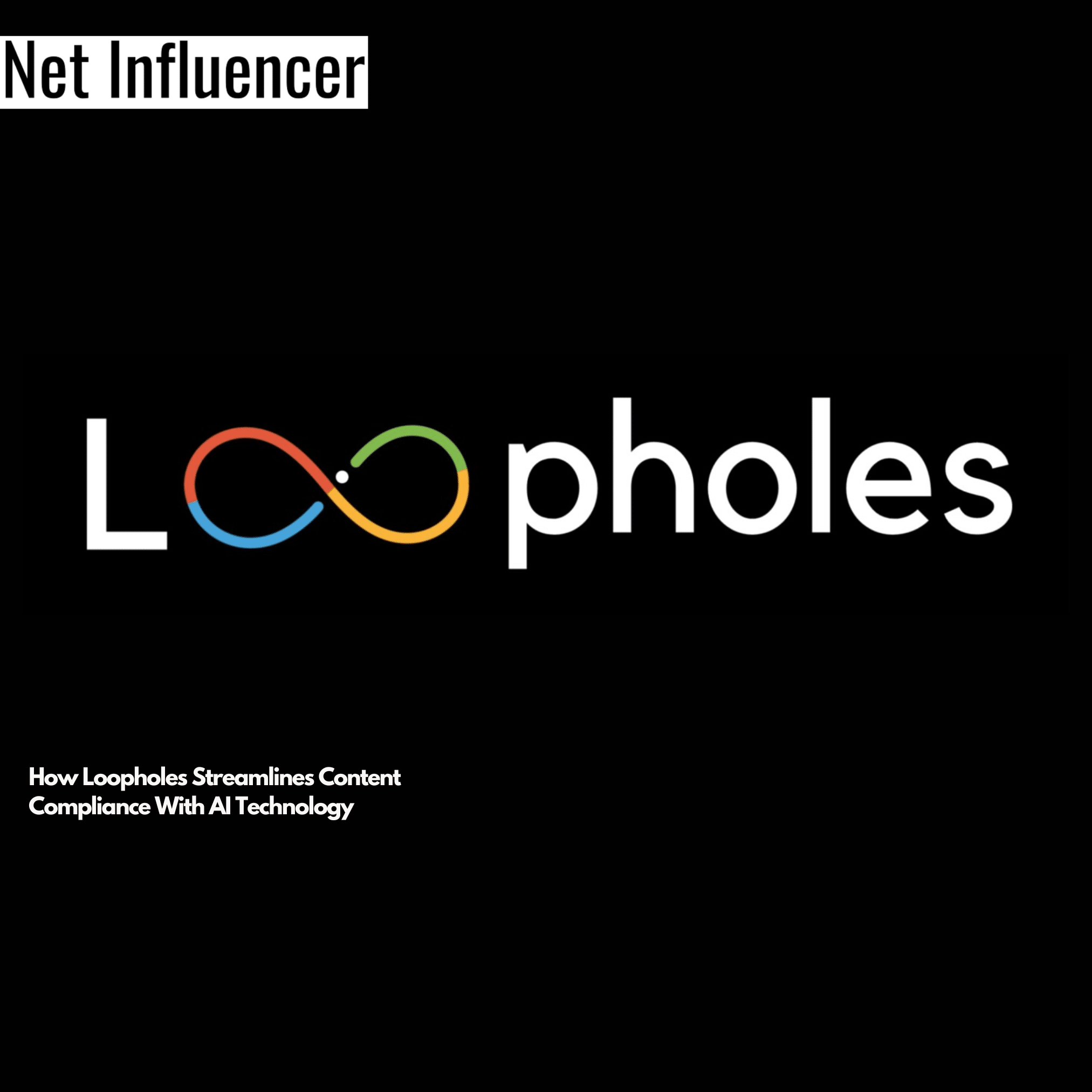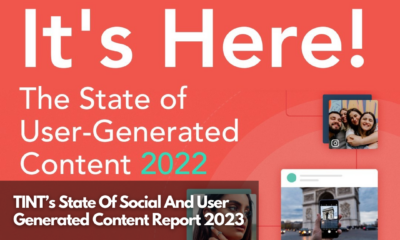Technology
How Loopholes Streamlines Content Compliance With AI Technology

As companies face millions in potential fines from content compliance mistakes, three entrepreneurs have developed an AI solution to tackle regulatory challenges. Lior Root, Sophia Trunzo, and Vishal Arora founded Loopholes after experiencing the complex content approval processes common in regulated industries.
From Agency Experience to AI Innovation
The idea for Loopholes was conceived in 2022 after Lior and Sophia co-founded a digital marketing agency that specializes in regulated industries. This is where they found that compliance can be a very long and manual process, with review cycles that can drag on for 8 weeks or more, depending on the size of the organization.
“When we looked for a tool that would streamline our process, we wanted to find something that would be part of our already workflow and not add another thing for our employees to log into or add another dashboard,” explains Lior, Loopholes’ CEO. Their work with over 150 brands revealed a significant market gap—the need for automated compliance verification to accelerate content approval.
As Loopholes’ CRO, Sophia brings extensive industry expertise: “I’ve been in digital marketing for a little over seven years, and my entire career has been in these highly regulated industries. I acted as the last line of defense between the agency, the brand, and those advertising platforms. I worked between creating all the content and ensuring it was compliant between the brands and then with publications, influencers, affiliate networks, and bloggers.”
In January 2024, Vishal joined as CTO and third co-founder. “He’s a big deal and widely known as the product guy for ad compliance,” Lior explains. “He shaped the processes and systems at Google, the largest ad compliance department in the world, and he led the odds compliance engineer team.”
Lior considers Vishal their “second secret weapon,” noting that “he transformed our dynamic duo into a dream team. His expertise and vision, combined with our experience, make us the best team to create this tool.”
Real-Time Compliance Checking
The platform distinguishes itself through seamless workflow integration via a browser extension, its “user-facing product.”
“We thought this was going to be a B2C tool that digital marketers will use to scan their content as they create it,” Lior explains. “When digital marketers are using Loopholes, they install the browser extension that they install, available on the Chrome web store, and it gives them real-time feedback.”
The solution has grown into a comprehensive enterprise platform. “We pivoted from focusing on B2C just to focus on B2B,” Lior says. “So we only work with agencies, brands, and CPG companies that we offer a dashboard, and that usually is the legal team managing the dashboard and the users, and they can dump their brains into our platform. From brand guidelines to brand tone of voice to all the policies they must follow.”
Preventing Significant Financial Penalties
Content compliance mistakes carry substantial risks. Sophia shares examples of major penalties: “Target, Pfizer, Skechers, Citibank, they’re getting fined for violating FTC or OCC regulations, which are massive. And they can get away with many things, but they’re not trying to.”
Sophia cites the example of Mott’s, which produces allegedly sugar-free applesauce. “Unfortunately, apples have sugar, so there’s still sugar inside the applesauce. They got a massive fine for that,” she adds.
Lior provides another notable example: “Skechers released new shape-up shoes. Their advertising claims that you can lose weight by wearing them. The FTC fined them $40 million for making that claim.”
She continues, “Sometimes, it’s hard to imagine if you’re not living in that world. Customers we talked to said that their social media manager posted an organic post on the account despite their startup being inactive for years. Suddenly, the social media manager is putting something out there; they get fined millions of dollars, and the company shuts down.”
Advanced Technology Framework
Loopholes uses sophisticated AI technology for comprehensive compliance verification.
“We have an ensemble at the back end that is a proprietary LLM that we developed, and we’re using the wisdom of the crowds,” Lior explains. “Between the machine that we trained based on regulations marketing platform policies for two years, we also combined it with three different sources to give you a recommendation based on the wisdom of the crowds and not just one source.”
The platform offers unique capabilities in content analysis.
“Another big differentiator is that we’re also scanning images, video, and audio, which no one else offers today. Most compliance software is just scanning for text,” Lior points out. “Most platforms will just flag what is wrong with your content, but will not tell you what policy you’re violating and will not suggest how to fix your content.”
The system integrates three primary data sources:
- Built-in policies (FDA rules, HIPAA, FTC guidelines)
- Marketing platform requirements (Meta, Google, TikTok, etc.)
- Custom brand guidelines and policies
“What is unique is when you start customizing and building a suite of your policies into our platform, and that’s when the AI is trained specifically for your brand,” Lior adds. “The more policies you insert, the more keywords and phrases you’re enforcing your employees to use by uploading into our platform, the smarter the machine will get.”
Sophia describes the platform’s ability to maintain brand consistency: “We had one use case where their social media manager continued to use their brand name as an adjective rather than a noun. That was something they needed to have a very significant policy set for. It was supposed to be very specific, making sure that the brand name wasn’t used in any other way besides being a noun. So it can get very granular.”
The platform maintains current compliance standards through daily automated policy scans.
“Our AI scans everything on a daily basis to make sure that if something changes with the compliance or the policies, we’re updating it on our end,” Lior explains. “We’ve seen it firsthand when Facebook or Meta one day tell you that you can’t advertise melatonin gummies because of health claims. They’re allowing it the next day, but you can’t use the word gummies, so you need to switch it with supplements.”
This automated updating addresses a crucial need because, as Lior notes, “It’s not like Meta or Google will send you their rule book and will let you know they’re changing their policy so you can pause all campaigns. Our system also offers this to our users: Even after the content is published, you can still scan it with our system to ensure that you’re still compliant even once the content is out there and to the public.”
Demonstrated Success
Loopholes delivers tangible benefits beyond preventing fines.
Sophia shares a client success story: “We have a clinical trials lab currently using Loopholes to review all their claims. The CEO no longer wanted to deal with an internal legal advisor or a legal compliance officer. She just wanted to be able to handle it internally and know that all of the policies were going to be correct. She had the FTC guidelines and internal guidelines. So, we made sure that all of those were implemented. Again, to your point of data security being out of the box, she had the Loopholes AI, and then it was something where she went ahead and implemented her policies. Now, her machine will only learn based on those policies that she’s implemented.”
Next Phase: Content Creation with Confidence
As social media platforms face increased regulation, Lior and Sophia anticipate compliance tools becoming essential for content creators.
“Moving to this online world in the last few years has changed everything,” Lior reflects. “When I started my career in digital marketing, Facebook ads just started, and it was exciting, but it was also the Wild West. We could have done everything we wanted from these crazy ideas and landing pages that will sometimes be deceptive just to get people into the door. This world doesn’t exist anymore.”
Following their Techstars participation, Loopholes continues to expand. “Through Techstars, we’ve brought our product to market,” Sophia shares. “This is what we’re excited for coming into the new year, which is our go-to-market again, focusing on those B2B companies. It will start with small and medium businesses and then scale to Fortune 500 companies.”
“We’re eliminating those few touch points that can take between six to 12 weeks and cutting it down to minutes,” Lior explains. “A content creator can now create their content with a lot of confidence, knowing that it will get through all of the checks, and that is how it will get published at the end. And so in minutes, you can get it reviewed and approved.”





















